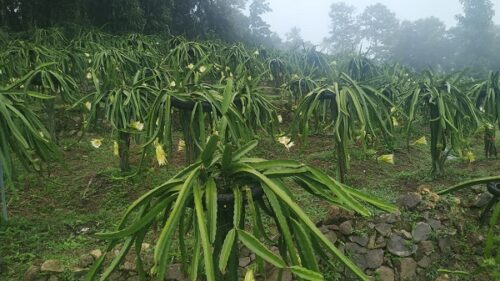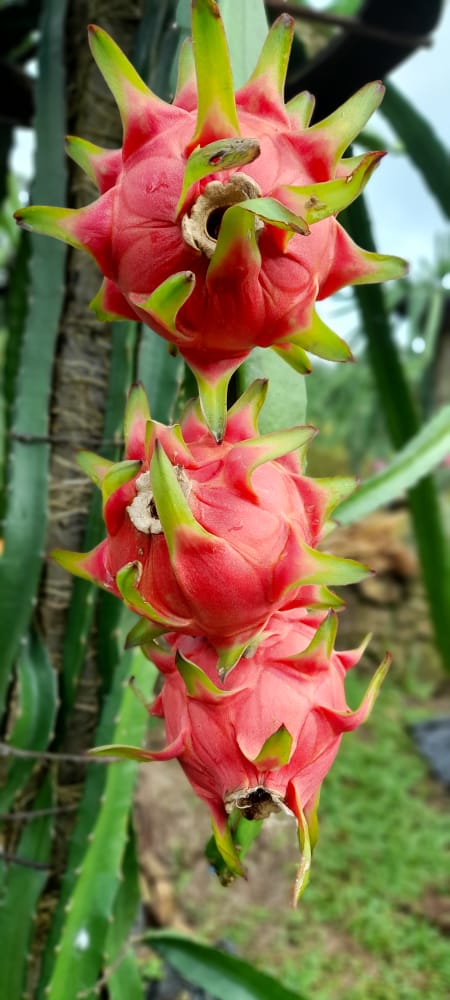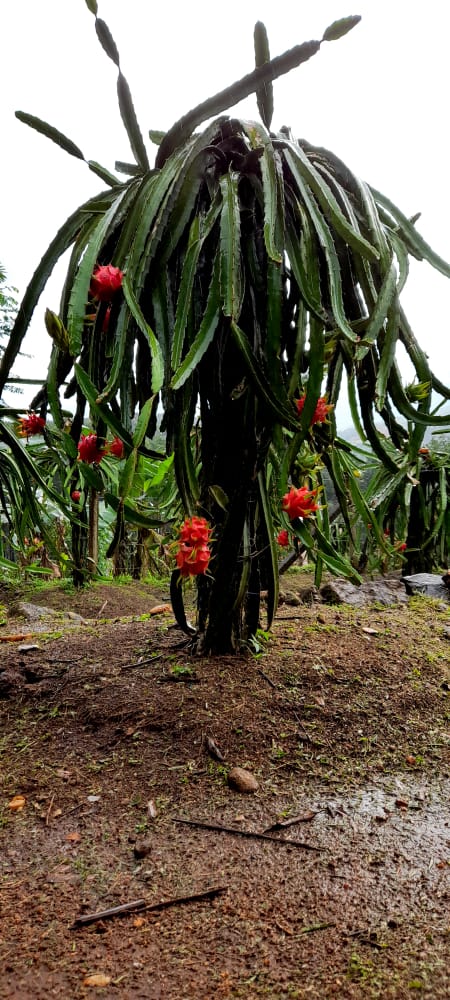K S Joseph of Kerala stepped down from his position as a banker in 2017. This was to be the end of an era, but also the beginning of a new phase.
Not used to sitting idle, Joseph knew that something needed to be done to fill the vacant hours of his late life. Inspired to be amidst nature in a profitable setup, he bought four acres of land on the picturesque hills of Athikkayam village in Kerala.
“But the land had been run down due to continuous rubber cultivation over the years. So I had to revive it with a plant that would require low maintenance and could survive harsh conditions,” he shares.
Initially, Joseph tried growing common fruits local to the state. But none of them sustained for the lack of proper soil conditions. Identifying the need to switch, he asked around for suggestions and was introduced to the wonders of dragon fruit.
What began as calculated planning has met with streamlined efforts ever since to reap abundant fruit, that too an exotic one. As many as 3,000 trees of pitaya, or dragon fruit, are earning him seasonal income of Rs 10 lakh through farming.

A prudent investment in fruit
Pitaya has gained popularity among consumers and farmers alike for its benefits and extremely profitable output. It’s packed with large amounts of fibre and water, and its consumption has been associated with reduced occurrence of coronary diseases and improved digestion. Presence of essential vitamins and minerals also makes this fruit a great immunity booster.
On the popularity of the fruit, Aakash Chadha, Chef de Partie at Lemon Tree Hotels says, “In the early 2000’s, the fruit was new in the Indian market, and hence had a high social appeal to it. In our experience, customers still demand it, now because of its intriguing appearance and nutritional content. The fruit is no longer an outlandish experience, but still an acclaimed one.”
When the mushy white pulp is scooped off the pink coloured scaly dragon-like skin, the appeal of the fruit becomes immediately clear. It feels slightly soft to touch when ripe, and is consumed as both a garnish on savoury salads and as an independent fruit.
He adds that because the sweet tasting treat has always been in high demand, it is now slowly being met by Indian cultivation as opposed to imports from its native countries of the west.

Joseph, a recent addition to this list of cultivators, reveals another reason why dragon fruit is a great investment for farmers. Being hardy in the face of drought, these plants require minimal irrigation and save him money on water consumption. His experience says that this makes the initial physical and monetary investment worth it in the long run.
At the incipient stage of the project, he had planted some 200 saplings on the land. For these, he set up an open framework of trellises stuck into the ground. The structures were made of cement for its strength, and would hold vines of up to four plants each. “Including the investment on set up and plants, a total fixed capital of Rs 2 lakh was invested in the first year,” he confirms.
All this work was undertaken by the industrious man alone. Today, the 65-year-old manages an output of anywhere between 300 to 500 kilograms with a team of up to four people.

Jitu, a labourer who found permanent employment under Joseph, explains that the team prepares chicken dung fertiliser every six months and sprinkles the land with cow dung manure on a quarterly basis to meet the nutritional requirement of the plants.
“The fruiting season goes on for six months from April through October. During this time, I sell the fruit by the kilo at a rate of Rs 200,” Joseph says.
While he is comfortable with the way things are going, his team excitedly urges him to keep expanding for the great use of land and profitability this venture is providing.
For any enquiries about the fruit, you may contact KS Joseph at +91 9446818547.
Edited by Divya Sethu
No comments:
Post a Comment